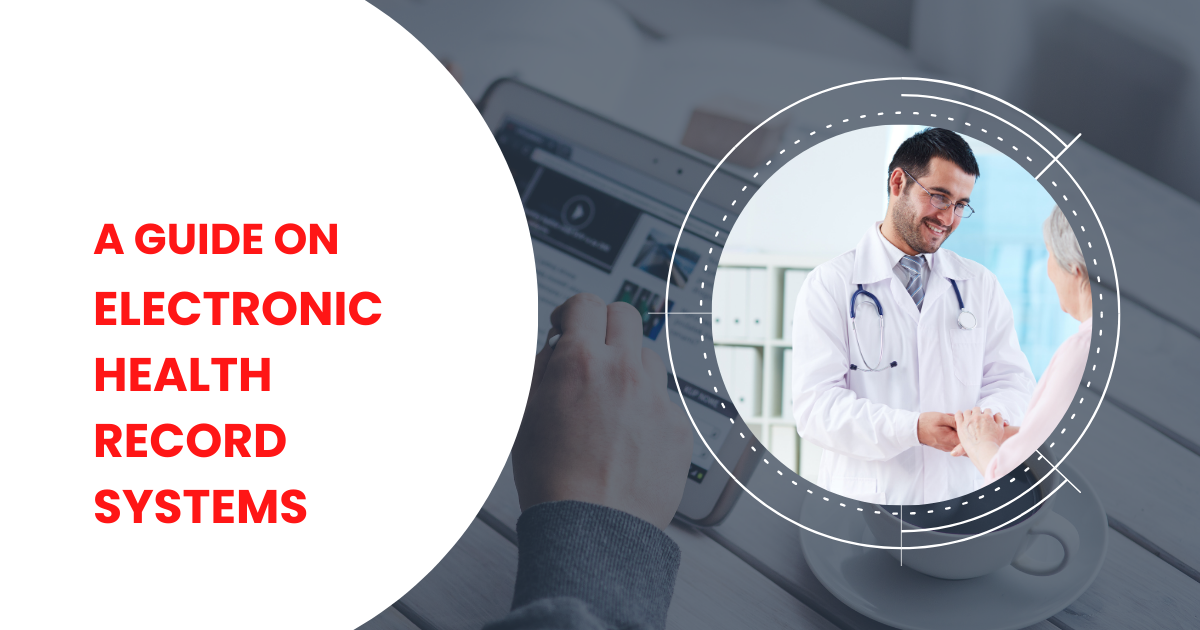In today’s digital-first world, healthcare is rapidly evolving, and technology is at the core of this transformation. One of the most impactful innovations is electronic health record systems. These platforms are designed to make patient information accessible, secure, and more useful than ever before.
What Are Electronic Health Record Systems?
Electronic health record systems are digital versions of a patient’s medical history. They go beyond simple paper records, providing real-time, patient-centered records that make information instantly and securely available to authorized users.
An EHR system can include:
- Medical history and diagnoses
- Treatment plans
- Immunization dates
- Allergies
- Radiology images
- Laboratory test results
This makes healthcare delivery more efficient and effective.
Why Are Electronic Health Record Systems Important?
Healthcare providers often face challenges managing multiple records, handling administrative tasks, and ensuring patient safety. Electronic health record systems address these challenges by offering:
- Accuracy: Reduces human errors associated with manual record keeping.
- Accessibility: Records can be accessed anytime, anywhere by authorized doctors.
- Coordination of Care: Different specialists can collaborate using shared patient data.
- Patient Empowerment: Patients can access their own records, boosting transparency.
Simplify parenting with our app.
Click on This Link

Key Features of Electronic Health Record Systems
Electronic health record systems are digital tools that helps to keep track health of your children anytime and anywhere. Here are the features of the system:
- Digital Record-Keeping – Patient information is stored securely in one place.
- Appointment and Scheduling Integration – Manages bookings efficiently.
- Billing and Insurance Support – Links patient care with smooth billing processes.
- Clinical Decision Support – Provides alerts and reminders for medications, tests, or preventive care.
- Data Security – Advanced encryption ensures compliance with privacy laws.
Benefits of Electronic Health Record Systems
If you are not aware of whether your children are growing properly or not, then it is a matter of concern. The electronic health record system will help you to keep track of the health of your children. Let us look at the benefits:
- Time-Saving for Doctors: No more shuffling through files – information is at their fingertips.
- Better Patient Outcomes: Accurate records help in diagnosis and treatment.
- Cost Reduction: Minimizes paperwork, duplicate tests, and administrative burden.
- Enhanced Communication: Improves doctor-patient and inter-specialist communication.
Real-Life Examples in India
India has been adopting electronic health record systems across hospitals and clinics:
- Apollo Hospitals uses EHRs to streamline patient care across their multi-city network.
- AIIMS Delhi has integrated EHR for better management of OPD and IPD patients.
- Private pediatric platforms like KidsCur focus on child health records, making vaccination and growth tracking easier for parents and doctors.
The Future of Electronic Health Record Systems
With the Government of India’s Ayushman Bharat Digital Mission (ABDM), the future of EHR is promising. More hospitals and clinics will be digitally connected, ensuring a seamless healthcare ecosystem where patient data flows securely between providers.
Upcoming trends include:
- AI-assisted health predictions
- Cloud-based EHR for small clinics
- Mobile access for patients and doctors
- Integration with wearable health devices
How KidsCur Can Help?
Electronic health record systems are not just a technological upgrade; they are the backbone of modern healthcare. By making healthcare more transparent, efficient, and patient-centric, EHR systems are paving the way for healthier communities and stronger medical practices. Our KidsCur app makes it easier to track records anytime and anywhere. Download the app now!
FAQs
What are electronic health record systems?
Electronic health record systems (EHRs) are digital platforms that store and manage a patient’s medical history, diagnoses, treatments, lab results, and more in one secure place.
How do electronic health record systems benefit patients?
EHRs improve patient care by reducing errors, providing easy access to medical history, ensuring timely follow-ups, and allowing patients to stay informed about their health.
Are electronic health record systems secure?
Yes, most EHR systems use encryption, access controls, and comply with privacy regulations such as HIPAA and India’s ABDM framework to ensure patient data safety.

